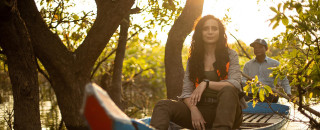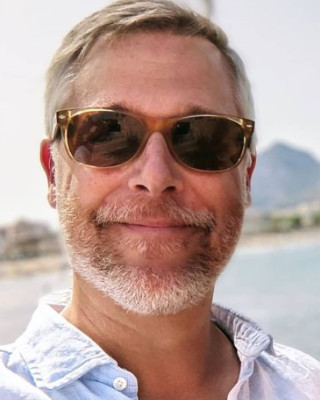Adventuring with Paleoanthropologist Ella Al-Shamahi
By Michael Mozdy
Ella Al-Shamahi is a paleoanthropologist, a television personality, an intrepid explorer, and even a stand-up comic. What’s more, she’s everything you want your daughter to be when she grows up: successful, fearless, well-spoken, intelligent, and a delight to be around. Born of Yemeni parents in England, she’s much more than a modern-day female Indiana Jones – she’s helping to change assumptions about who scientists and archaeologists are.
As a paleoanthropologist, Al-Shamahi has helped to break the stereotype that Neanderthals were knuckle-dragging sub-humanoids. In addition to being faster, smarter, and better looking than we thought, “they cared deeply for members of their communities who would have died years prior without assistance,” she asserts. She presented her findings on the 2018 BBC program Neanderthals - Meet Your Ancestors.
It was to be the first of six television appearances, most of them natural history documentaries, ranging from finding prehistoric Amazonian rock art to testing the curse of Tutankhamun’s tomb. Al-Shamahi is a natural in front of the camera, her gregarious personality and easy way with words have been helped by her forays into stand-up comedy, something she claims helps her cope with the dark side of her adventuring.
“There are TV expeditions and then there are my real expeditions,” she notes. While the TV expeditions took off right after COVID as networks looked for good, new content, Al-Shamahi continues to pursue her non-televised scientific adventuring. She searches for fossils in caves in disputed, hostile, and unstable territories.
“I need to do real expeditions in order to be the authentic ‘me’,” she explains. “It’s very important to have my ear to the ground and hear the whispers of where the new discoveries are happening.”
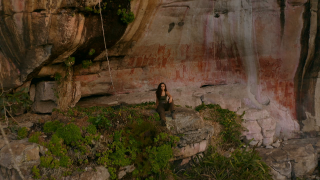
Al-Shamahi’s desire to work in unstable territories contains a compelling logic: “If we are still turning up discoveries in Wales and across England, what incredible scientific discoveries are we missing in these other areas because we’re not looking?” she asks. She believes that large parts of the planet’s potential contribution to science are overlooked due to instability. “The lowest hanging fruit are the places people have neglected.”
One of these places that Al-Shamahi loves is a small archipelago between the coasts of Somalia and Yemen called Socotra. Much like the more famous Galápagos Islands, Socotra plays host to hundreds of endemic plant and animal species only found there. It also has unique and interesting landforms, including the caves within which Al-Shamahi plies her trade.
“Caves are the original prime real estate,” she quips. What’s more, they preserve prehistoric fossils much better than on the surface, especially in desert conditions where sun, wind, erosion, and scavengers have erased much of the fossil record. But, she admits, “caves are very, very complicated; you have to use ropes or squeeze yourself in, and you need a good geologist to help identify what layer you’re in.” Much of the initial assessment of a potential archaeological site is mapping the cave.
The other obvious challenge is getting to these unstable territories in the first place.
Socotra lies in notoriously pirated waters, where guns and violence are not uncommon. Civil war in Yemen means that permits and transportation are not easy to obtain. These and other factors have afforded Al-Shamahi some hair-raising adventures and helped to secure her reputation as a fearless explorer. She has some great stories about run-ins with warlords, drug gangs, and pirates.
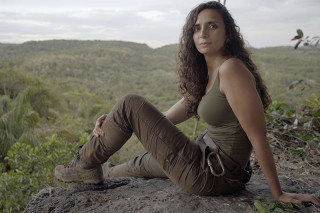
You might wonder if Al-Shamahi, who describes herself as having “quite a high tolerance for risk,” ever feels frightened in these situations. “To be honest, the most terrified I’ve been was in a cave when I was slipping,” she laughs. “In situations with nervous people and guns, people react to me differently because I’m a woman,” she reflects in a 2020 interview. “They feel like I’m not a threat, which can be quite an advantage.” She has experienced other assumptions being woman of color. “People aren’t expecting me to be an explorer,” she states. Whether with TV producers or the general public, Al-Shamahi has felt the double-take they give her when they realize who she is and what she’s capable of.
“It’s a huge honor and a huge responsibility to fill this role,” she admits. “I’m acutely aware of it and obsessed with the messaging and my behavior when I’m on camera. I know I am representing a lot of people and they are expecting me to get everything right.”
She feels that it’s just as important for young boys as young girls see her in this role. She notes that when she visits classrooms, kids, regardless of gender, quickly get over the fact that she’s a woman and move on to exploring the science with her. She is thrilled that someday she’ll be the cool explorer aunt taking her little nephew on adventures.
Her advice to young women is to read a lot so they are prepared, regardless of their field, and to network. “You can either be born with a really good network or you’ve got to get one,” she asserts. She notes that brilliance alone, sadly, doesn’t get people to their dream job.
Rather than seeing networking as a self-serving chore, Al-Shamahi says, “If you do networking right, it’s about having friends and connecting with them.” While she admits to having the “gift of gab,” she puts work into maintaining her friendships. “I literally write a note to myself now and then to check in on my networks,” she states. A final piece of advice: she counsels young people to offer opportunities for connection rather than to ask for favors.
Her talent for networking has brought her into contact with an array of scientists and explorers who share an interest in the regions she wants to explore. Since getting into these places is difficult at best, she prefers to leverage an expedition to give scientists in a wide range of discipline an opportunity to explore with her.
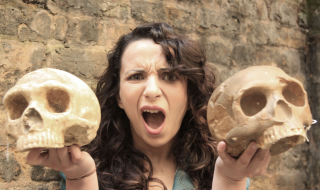
For her next team expedition, Al-Shamahi has her sights set on Somaliland, the northern part of Somalia. This project is based around a small group of Somalilanders and what they would benefit from. For Al-Shamahi, this is a natural and just perspective to put the concerns of the people who live in an area at the forefront. In Somaliland, the Somali civil war was hugely disruptive on both people and wildlife. A local collaborator, a wildlife specialist, wants to study populations in the area. Another researcher from Somaliland wants to investigate venomous snakes in the area. Al-Shamahi, of course, wants to explore some caves, and herein lies another challenge: “Half of the headache is to find a route where I can visit caves and where they encounter the biodiversity that they want to study,” she reports. With an interdisciplinary team, you have to find an expeditionary route that hits the sweet spot for most people.
When Al-Shamahi spoke at Kingsbury Hall in Salt Lake City on April 4, 2023, she shared “a lot of behind the scenes stuff. It’s a good tour of the planet – Colombia, Yemen, Somaliland, maybe even Cambodia,” she said. And as an adventurer talking to people of similar ilk here in Utah, she has some advice: “good luck on your adventure shouldn’t be a result of being underprepared. Have your medical kits, numbers for first responders in the area, and a plan if you don’t resurface. And have fun!”
We salute Ella Al-Shamahi for her inspiring work and loved hosting her here in Salt Lake City.
Michael Mozdy is the Associate Director for Science Communications in the Department of Radiology and Imaging Sciences at the University of Utah and a part-time contributor to the Natural History Museum of Utah. Our mission is to illuminate the natural world and the place of humans within it. In addition to housing outstanding exhibits for the public, NHMU is a research museum. Learn more.
